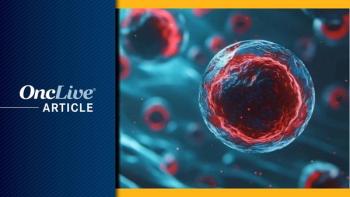
Dr. Shah on the Clinical Significance of Ide-Cel in Myeloma

Nina Shah, MD, discusses the clinical significance of idecabtagene vicleucel for the treatment of patients with multiple myeloma.
Nina Shah, MD, a hematologist and oncologist, and an associate professor of medicine, Department of Medicine, at the University of California, San Francisco (UCSF) Helen Diller Family Comprehensive Cancer Center, discusses the clinical significance of idecabtagene vicleucel (ide-cel; Abecma) for the treatment of patients with multiple myeloma.
Over 70% of patients responded to treatment, which is significant when considering that this is a patient population of advanced disease, Shah explains. With the dose of 450 × 106 CAR-positive T cells, which is the standard dose from the FDA label, patients achieved a response rate of over 80% and a median progression-free survival of 11.3 months. Such strong data had yet to be seen for patients relapsed/refractory myeloma until the KarMMa study, which ultimately led to the regulatory decision to approve the product for patients with advanced disease, Shah concluded.



































